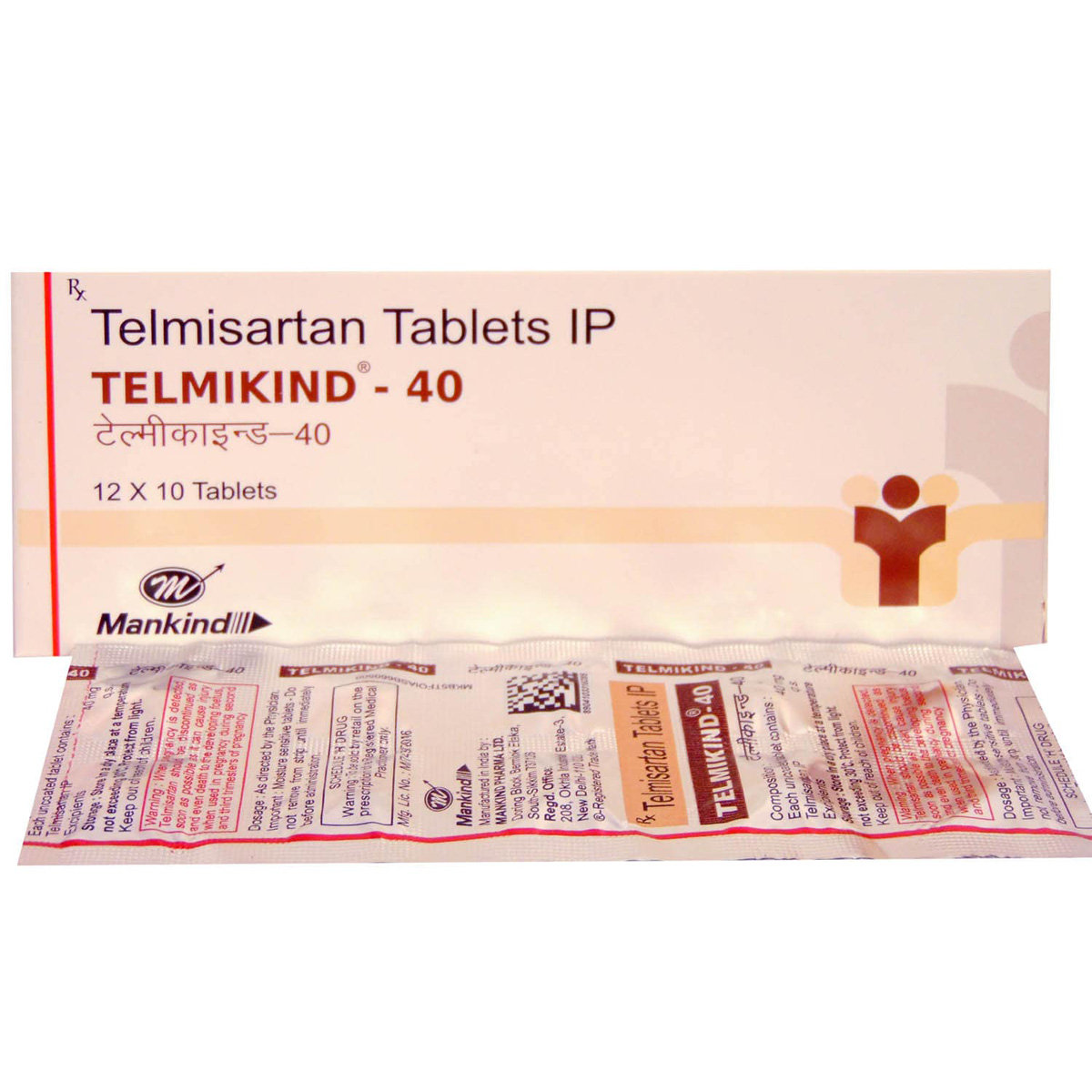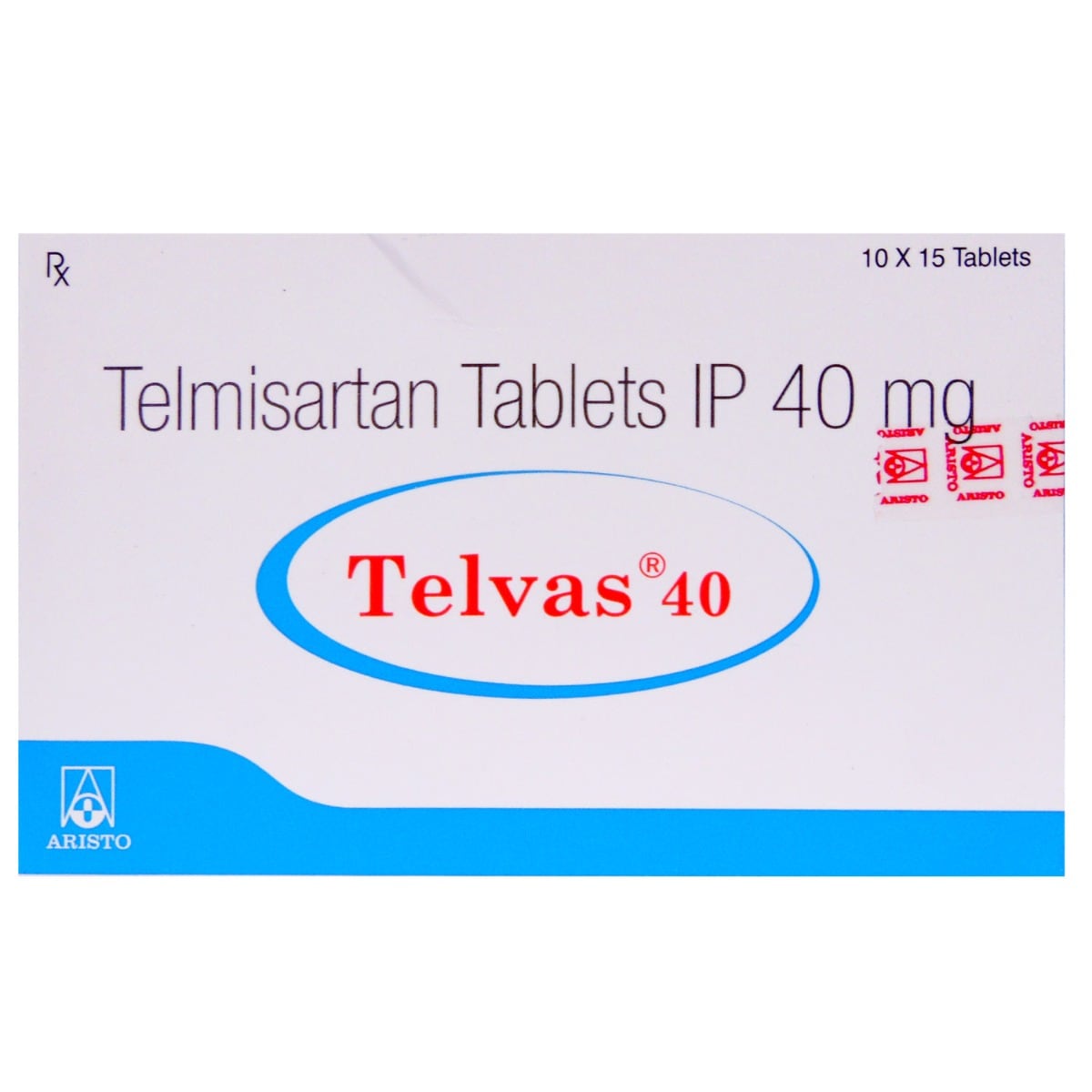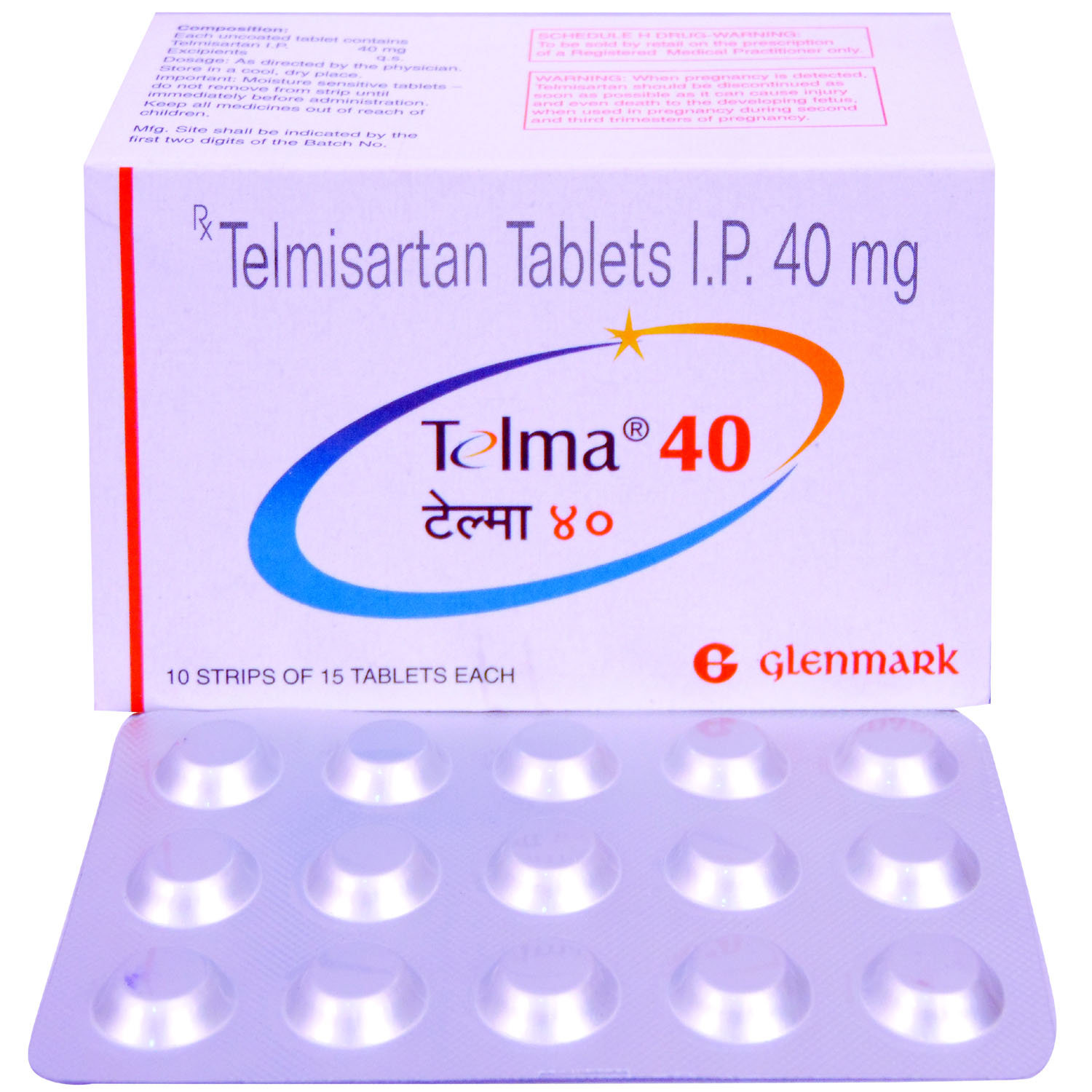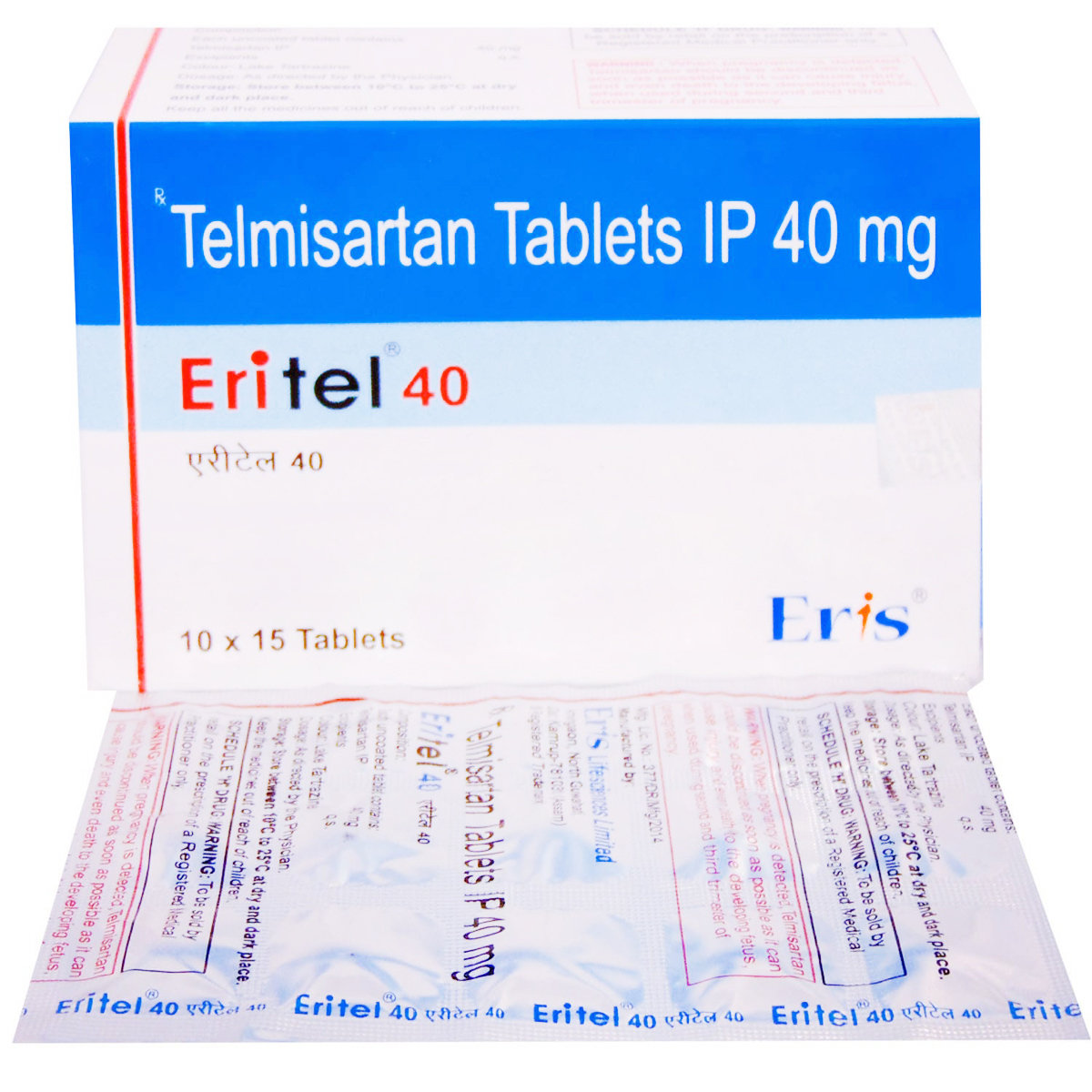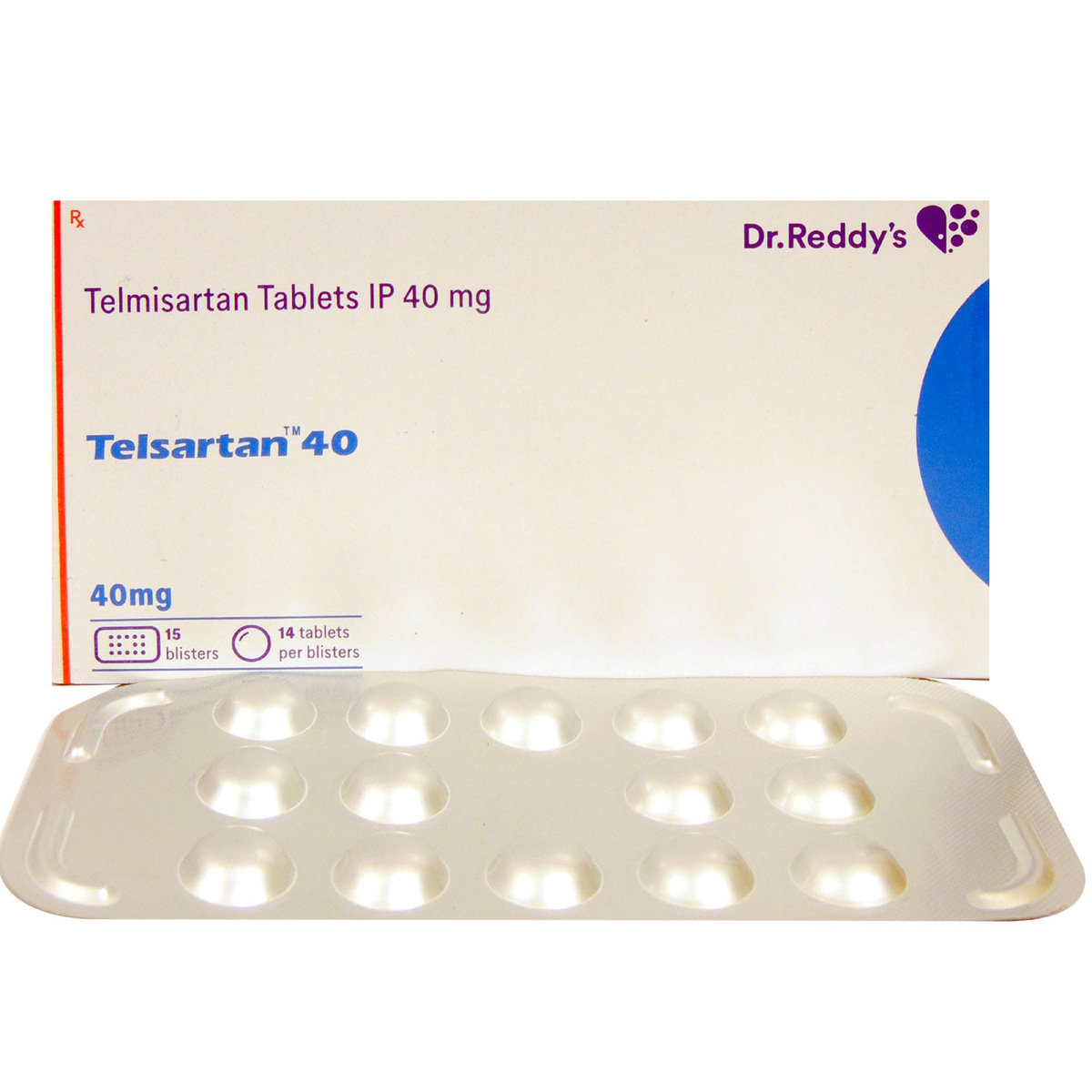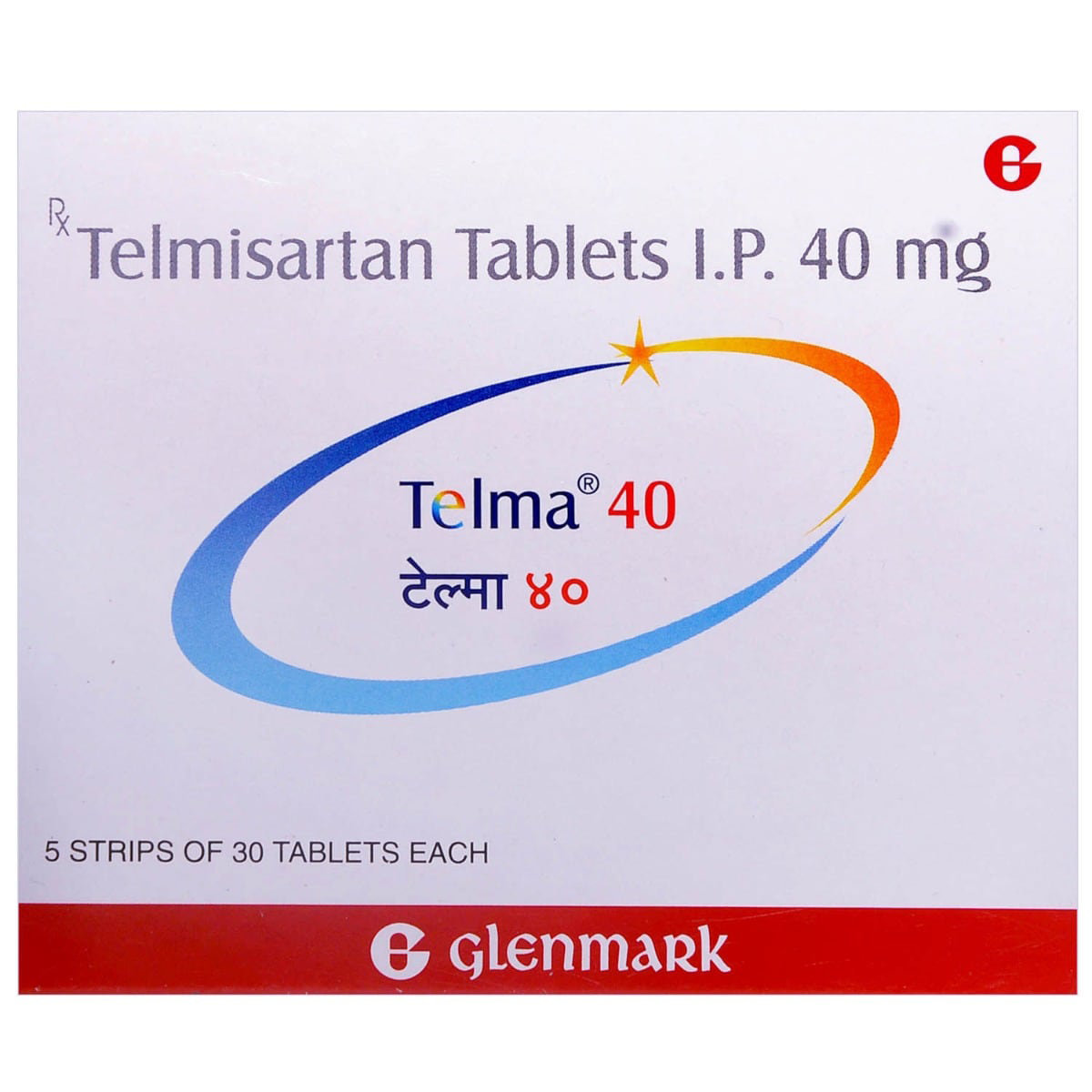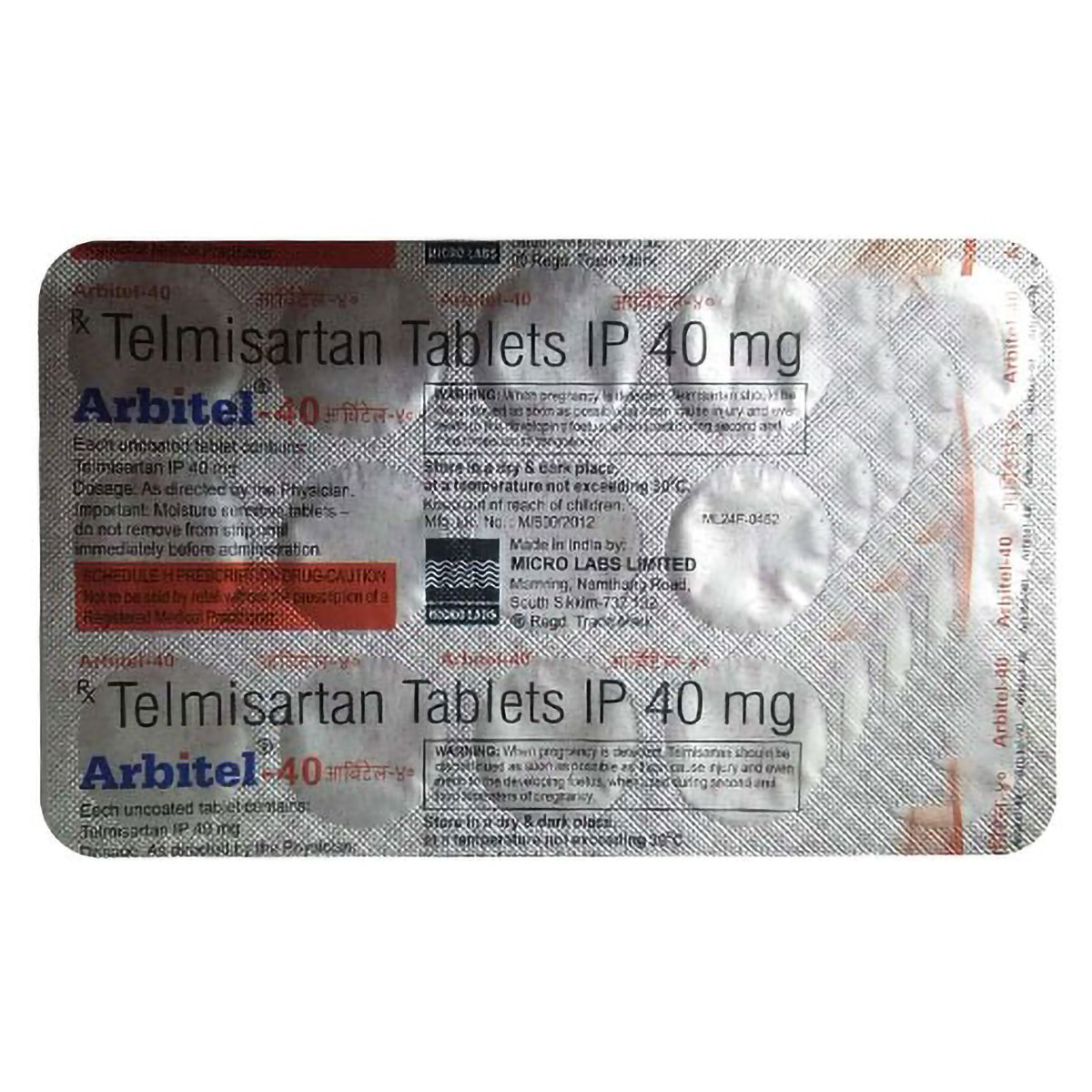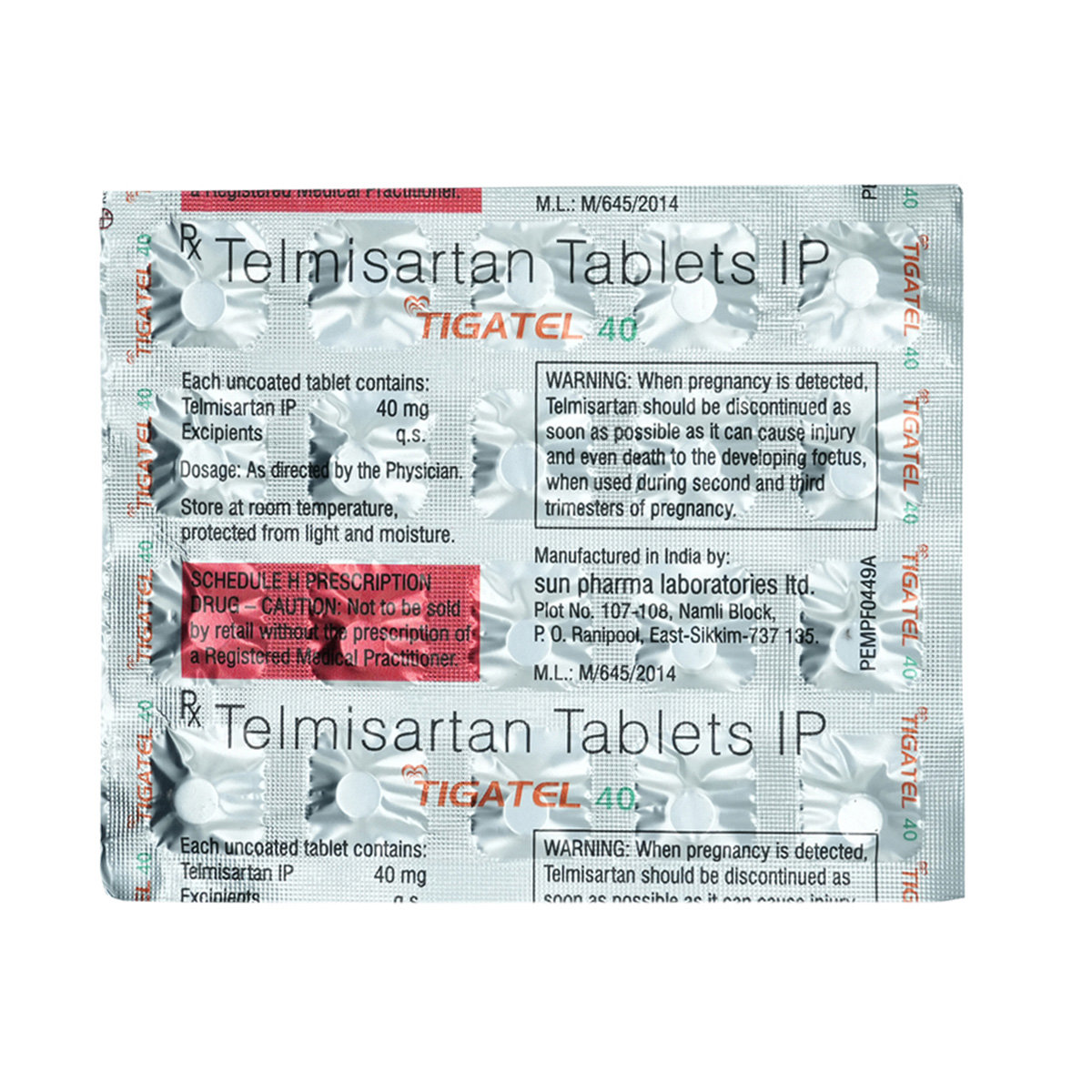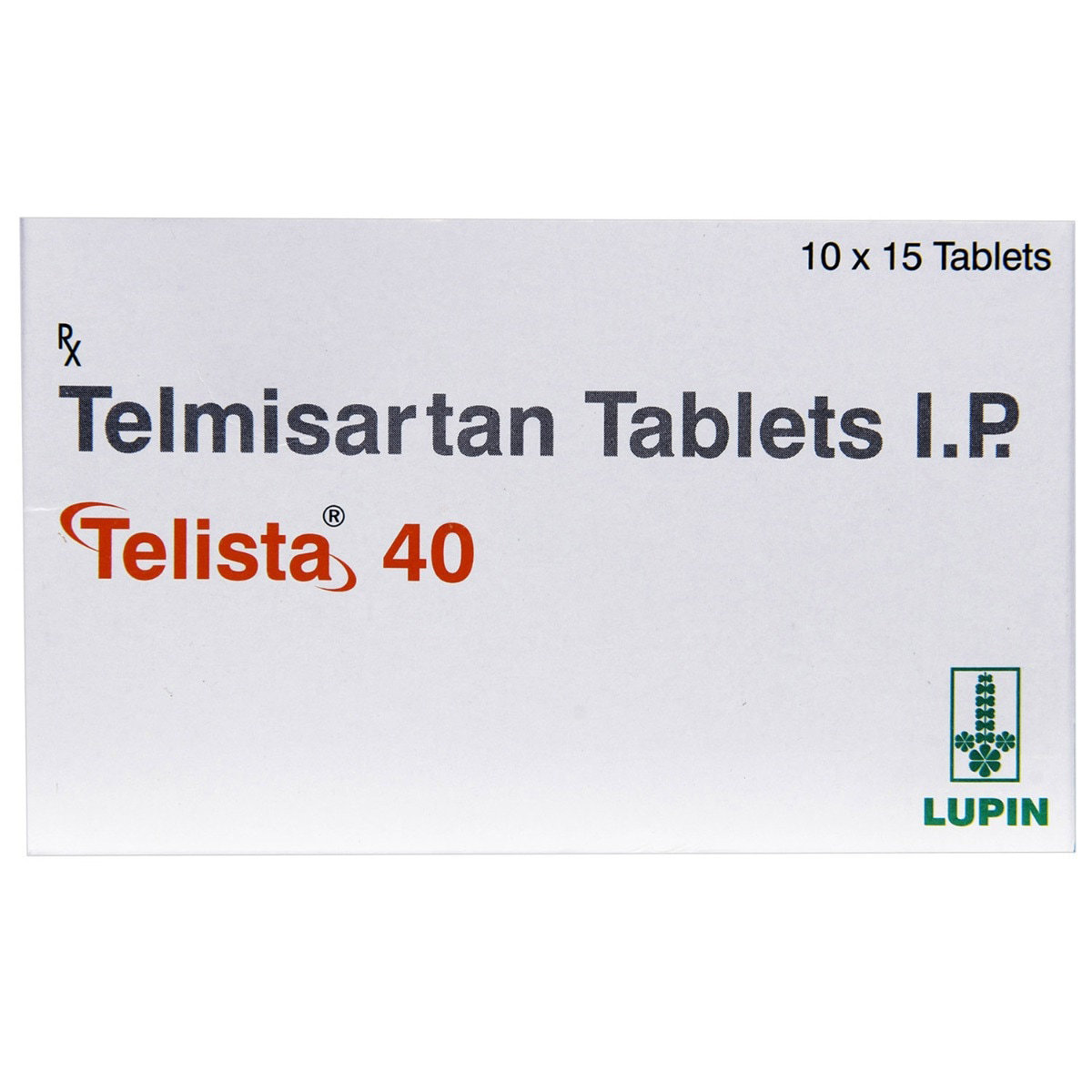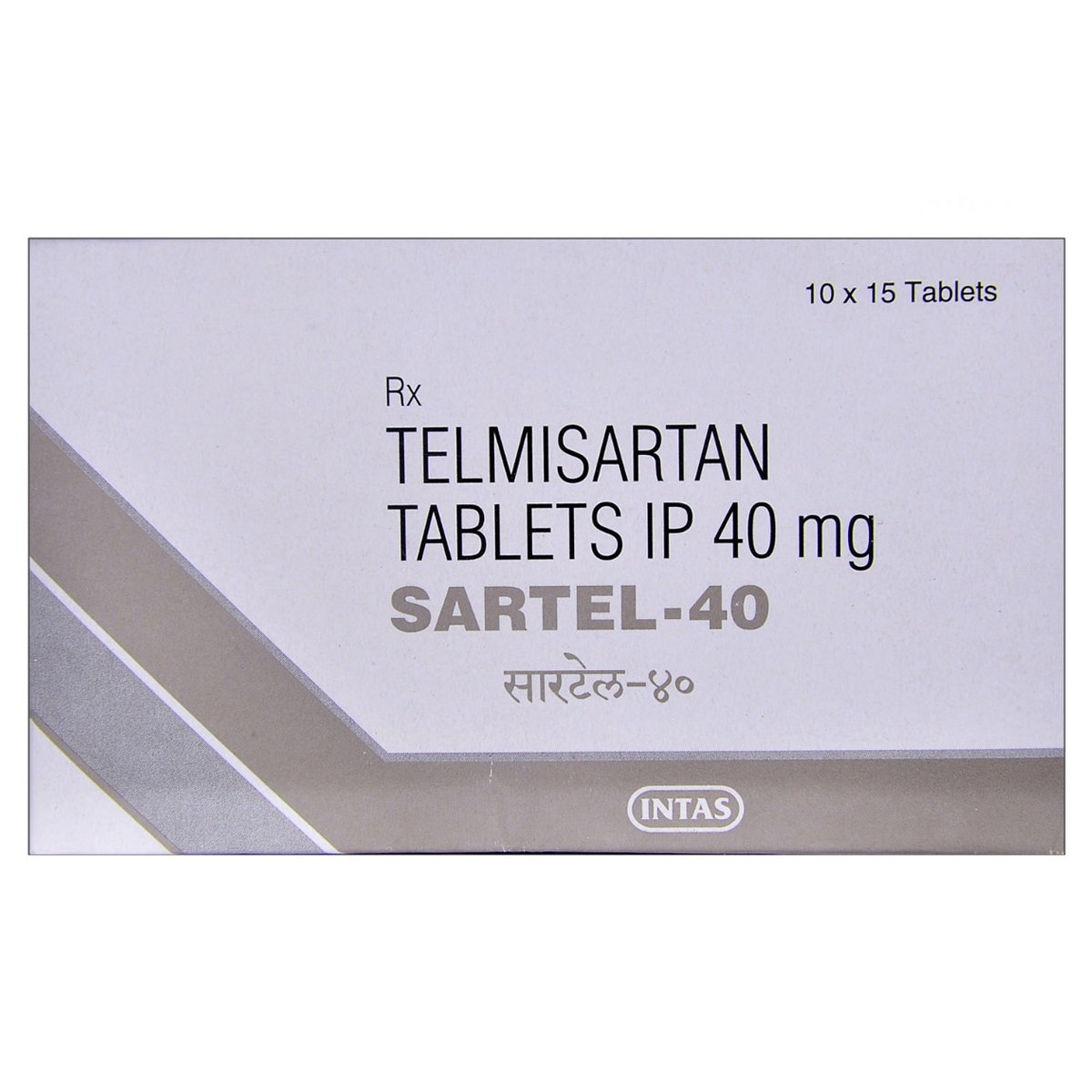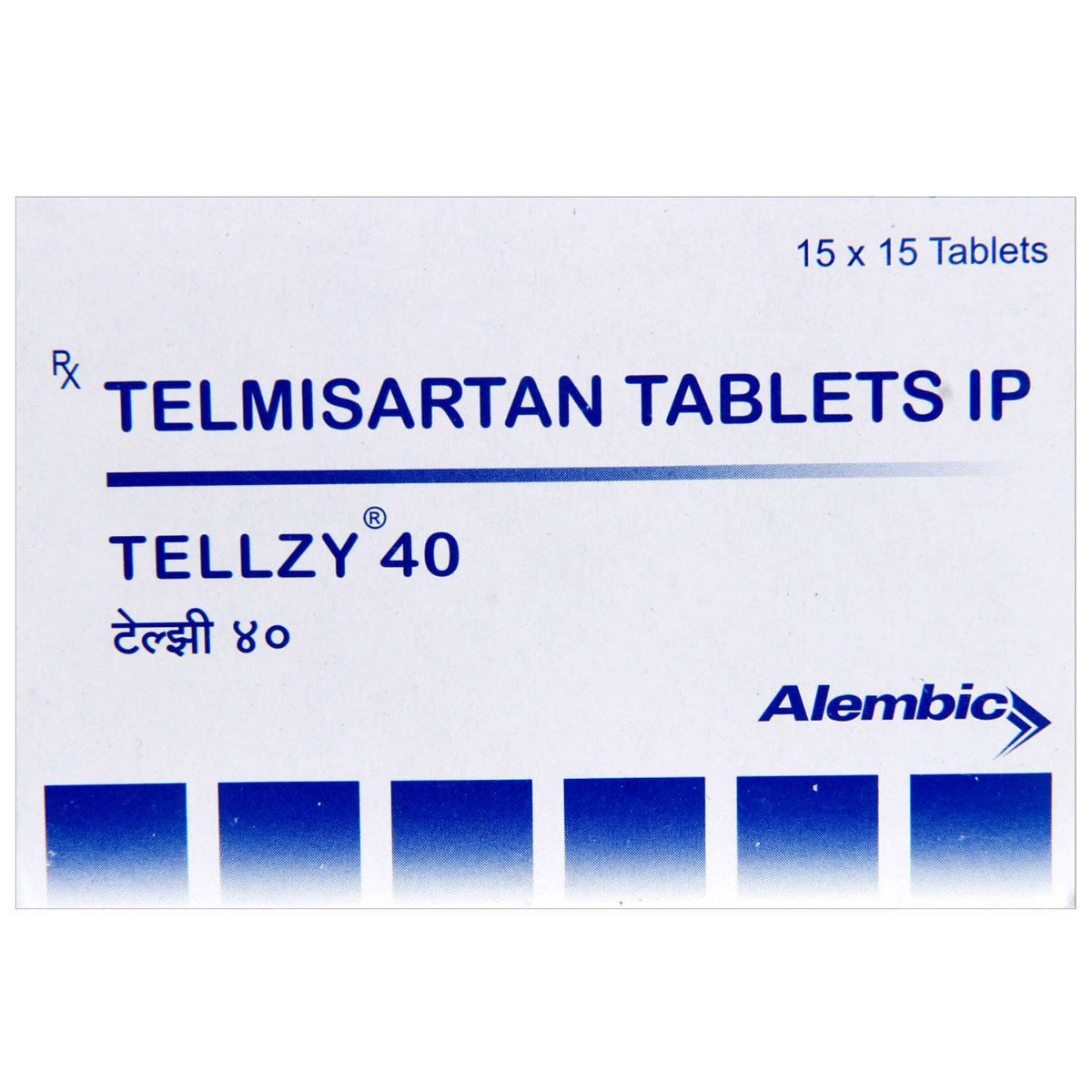Terelate 40 mg Tablet 10's
MRP ₹81
(Inclusive of all Taxes)
₹12.2 Cashback (15%)
Provide Delivery Location
Online payment accepted
 Prescription drug
Prescription drugWhats That
Composition :
Manufacturer/Marketer :
Consume Type :
Expires on or after :
Return Policy :
NPPA :
About Terelate 40 mg Tablet
Terelate 40 mg Tablet belongs to a group of medicines known as angiotensin II receptor blockers that are used for the treatment of hypertension (high blood pressure) in adults. Additionally, Terelate 40 mg Tablet is used to reduce the risk of heart attack or stroke in adults. Essential hypertension is a medical condition in which the blood pressure is elevated persistently in the arteries without any known cause. On the other hand, heart attack or stroke occurs due to blocked blood flow to the heart or brain, respectively.
Terelate 40 mg Tablet works by blocking the action of a hormone called angiotensin II in the body that causes narrowing of blood vessels leading to high blood pressure. Thereby, Terelate 40 mg Tablet widens and relaxes blood vessels. Thus, lowers high blood pressure.
You can take Terelate 40 mg Tablet irrespective of food and swallow whole with a glass of water. Do not crush, chew or break it. Your doctor will let you how often you should take your tablets based on your medical condition. In some cases, you may experience diarrhoea, sinus infection, back pain or low blood pressure. Most of these side effects of Terelate 40 mg Tablet do not require medical attention and gradually resolve over time. However, if the side effects persist, please consult your doctor.
Terelate 40 mg Tablet is not for pregnant women as its use during your pregnancy can cause injury and even death to your unborn baby. It is not known whether Terelate 40 mg Tablet passes into your breast milk or not. Your doctor will decide if you will take Terelate 40 mg Tablet while using Terelate 40 mg Tablet and breastfeeding together. Prolonged intake of Terelate 40 mg Tablet may cause high potassium in the blood (hyperkalemia). Avoid intake of potassium supplements with Terelate 40 mg Tablet as it may lead to high potassium levels in the blood, so the doctor may ask you to have a regular check of your potassium level. Do not consume alcohol with Terelate 40 mg Tablet as it may increase the risk of low blood pressure. Taking Terelate 40 mg Tablet with painkillers (like aspirin and ibuprofen) can increase the risk of kidney problems and reduced efficiency of Terelate 40 mg Tablet .
Uses of Terelate 40 mg Tablet
Directions for Use
Use Terelate 40 mg Tablet only when prescribed by a doctor. Always take Terelate 40 mg Tablet exactly as your doctor told you. Your doctor will advise you how often you take your tablets on the basis of your medical condition. Swallow the tablet with a glass of water daily at the same time for effective results.
Key Benefits
Terelate 40 mg Tablet is used to treat high blood pressure and reduce the risk of heart attack or stroke. Terelate 40 mg Tablet is an angiotensin II receptor blocker decreases high blood pressure by widening and relaxing the blood vessels by blocks the action of a hormone called angiotensin II in the body which causes narrowing of blood vessels leading to high blood pressure.
Storage
Drug Warnings
Terelate 40 mg Tablet is not recommended for people with impaired kidney function, diabetes or severe liver problems. Terelate 40 mg Tablet may increase the risk of low blood pressure when taken with alcohol. Terelate 40 mg Tablet may cause tiredness or dizziness in some people. Make sure you are not affected before driving. Breastfeeding women are advised to consult a doctor before taking Terelate 40 mg Tablet . Avoid intake of potassium supplements with Terelate 40 mg Tablet as it may lead to high potassium levels in the blood, so the doctor may ask you to have a regular check of your potassium level. Do not consume alcohol with Terelate 40 mg Tablet as it may increase the risk of low blood pressure. Taking Terelate 40 mg Tablet with painkillers (like aspirin and ibuprofen) can increase the risk of kidney problems and reduced efficiency of Terelate 40 mg Tablet .
Diet & Lifestyle Advise
Maintain a low salt diet and minimize eating processed foods as they contain more sodium. Try to replace salt with spices or herbs to add flavour to the food.
Do regular exercise such as cycling, walking, jogging, dancing or swimming for a minimum of 30 minutes per day.
Chronic stress may also cause high blood pressure. Therefore, avoid stress by changing your expectations, the way you react in certain situations and making time for yourself to do activities that you enjoy.
Maintain a diet that is rich in fruits, vegetables, whole grains and low-fat dairy products.
Avoid smoking and alcohol intake.
Side Effects of Terelate 40 mg Tablet
- Diarrhoea
- Sinus infection
- Back pain
- Low blood pressure
Habit Forming
Therapeutic Class
All Substitutes & Brand Comparisons
RX
Telmikind-40 Tablet 10's
Mankind Pharma Pvt Ltd
₹41
(₹3.69 per unit)
49% CHEAPERRX
Telvas 40 Tablet 15's
Aristo Pharmaceuticals Pvt Ltd
₹94.5
(₹5.67 per unit)
22% CHEAPERRX
Tazloc-40 Tablet 15's
USV Pvt Ltd
₹96.5
(₹5.79 per unit)
20% CHEAPER
Author Details
We provide you with authentic, trustworthy and relevant information
FAQs
Drug-Drug Interactions Checker List
- IBUPROFEN
- ASPIRIN
- HEPARIN
- DIGOXIN
- LISINOPRIL
- ENALAPRIL
- RAMIPRIL
- BENAZEPRIL
- CAPTOPRIL
- FOSINOPRIL
- MOEXIPRIL
- PERINDOPRIL
- QUINAPRIL
- ALISKIREN
- AMILORIDE
- SPIRONOLACTONE
- TRIAMTERENE
- TIZANIDINE
- TRIMETHOPRIM
Special Advise
Monitor your blood pressure regularly and if you notice any fluctuations, please consult a doctor.
Low salt diet and regular exercise are recommended along with Terelate 40 mg Tablet for effective results.
Disease/Condition Glossary
High Blood Pressure (Hypertension): When the blood pressure rises, there is too much of force develops on the lining of arteries wall that makes the heart work harder to pump blood throughout the body. This results in the damage of the blood vessels. If high blood pressure is left untreated, it can lead to stroke, heart attack, heart failure, kidney failure, and eye problems.
Cardiovascular risk: It is usually diagnosed in the patients older than 55 years of age characterized with blood vessel disease in the heart, brain, or legs (coronary, peripheral, or cerebral vascular disease) or diabetes with organ damage.

Have a query?
Alcohol
Safe if prescribed
You are recommended to avoid consumption of alcohol with Terelate 40 mg Tablet as it may increase the risk of low blood pressure and cause adverse effects such as dizziness, fainting, light-headedness or headache.
Pregnancy
Consult your doctor
Terelate 40 mg Tablet is a Category D pregnancy drug and is considered unsafe for pregnant women especially in the second and third trimesters.
Breast Feeding
Consult your doctor
Avoid breastfeeding while taking Terelate 40 mg Tablet as it may be unsafe for the baby.
Driving
Safe if prescribed
Terelate 40 mg Tablet may cause dizziness or tiredness in some people. So, make sure you are not affected before driving or operating machinery.
Liver
Consult your doctor
Take Terelate 40 mg Tablet with caution, especially if you have a history of Liver diseases/conditions. The dose may be adjusted by your doctor as required. Terelate 40 mg Tablet is not recommended for patients with severe liver disease.
Kidney
Consult your doctor
Take Terelate 40 mg Tablet with caution, especially if you have a history of Kidney diseases/conditions. The dose may be adjusted by your doctor as required.
Children
Safe if prescribed
It is not recommended for children below 12 years as the safety and effectiveness in children is not established.
Recommended for a 30-day course: 3 Strips




